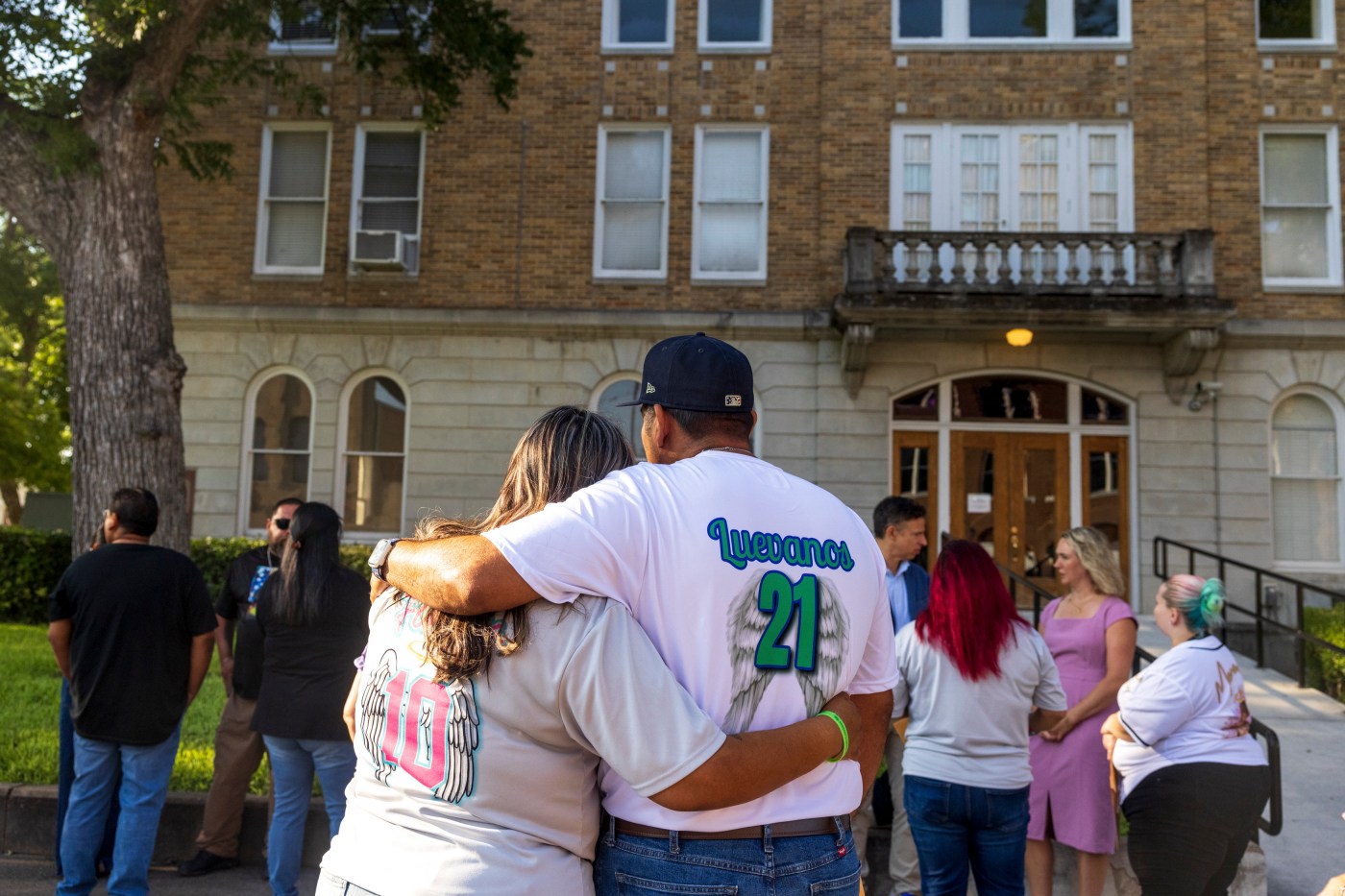
Stephen L. Carter: Prosecuting parents won’t stop school shootings
Did the parents of Dimitrios Pagourtzis, who as a teenager in 2018 shot and killed 10 people at a Texas high school, bear any responsibility for his crime? Earlier this week, a jury found they owed no damages to the families of the slain. That would seem to be the end of that.
Some observers immediately pointed out that the outcome of the civil case makes criminal charges against Antonios Pagourtzis and Rose Marie Kosmetatos less likely. The context suggests that this result might be lamentable.
I’m not so sure. Prosecutors, I know, are as angry and sick to heart as the rest of us that these shootings never seem to stop. I’m just not sure that locking up the parents is the best fix.
The puzzle over when, if ever, parents ought to bear legal responsibility for the violence of their children has been with us for a long while. Laws holding parents liable (in civil damages) for at least some of the torts of their children go back to the 19th century. But criminal charges have long been the exception rather than the rule. Until recently, when a mother or father was punished at all, it was typically not for the crime the child committed, but for what amounts to bad parenting.
In a headline-grabbing 1947 case, a 14-year-old New York City boy named Frankie Rivera used a stolen .22 caliber rifle to shoot and wound three bystanders. His mother, found in a bar, was arrested. After being convicted of contributing to her son’s delinquency, she was sentenced to a year in jail.
Related Articles
F.D. Flam: If killing one species might save another, should we do it?
Bret Stephens: Can we be a little less selective with our moral outrage?
Taylor J. Swift: Congress must get serious about its capacity or cede power to courts
Matthew Yglesias: The breakout star of the Democratic Convention was … YIMBY
Zeynep Tufekci: Don’t call the Telegram CEO’s arrest a free-speech infringement — yet
The newspapers reported that in the wake of her conviction, a couple of dozen parents telephoned city authorities to report the suspicious activities of their own children, including a mother who “reported her son had built himself a ‘weapon.’” If the high-publicity prosecution was intended to have a deterrent effect, it seemed to work, at least in the short term. (The conviction was later reversed on technical grounds.)
Another case arose in 1989, when Los Angeles police arrested one Gloria Williams on charges of “failure to exercise reasonable care, supervision, protection and control” over a child after her teenage son’s alleged involvement in the rape of a 12-year-old girl. According to press reports, a search of Williams’ apartment yielded, among other items, a birthday cake decorated with the name of a gang and “photograph albums showing members of the Williams family pointing guns.” The victim told police that she had been kidnapped from the Williams back yard. The charges were later dropped, and activists pointed at the case as an example of the ways that “parental responsibility” laws would land most heavily on women and the urban nonwhite.
Nevertheless, for the past century or more, this is how it has been done. If a child commits a terrible act, in most cases the family was left alone. If the parents suffered any sort of criminal punishment, it was not for the child’s act; it was for either neglect or contributing to the delinquency of a minor. They were at fault, in other words, not for what their child had done, but for somehow raising a son or daughter capable of so heinous a crime.
That consensus broke down earlier this year, when, in separate trials, James and Jennifer Crumbley were convicted on charges of involuntary manslaughter resulting from their son Ethan’s 2021 slaying of four students at a Michigan high school. Ethan was sentenced to life imprisonment without the possibility of parole; unless the verdicts are overturned on appeal, his parents will serve a minimum of 10 years each.
That outcome was celebrated by many observers, on the theory that locking up the parents might provide sufficient deterrence to finally put a stop to the horror of school shootings. And it’s true that something needs to be done. But is putting the parents behind bars the right something?
Even if the Crumbleys deserve jail time, I’m far from the only law professor to worry that for an ambitious prosecutor armed with this new hammer, “everything can look like a nail.” If we prosecute the parents of school shooters, why not the shooter on the street? If the shooter on the street, why not the stabber, the threatener, the mere bully?
One might reply that the Crumbleys displayed an unusually egregious recklessness not likely to arise in other cases. And, indeed, the jury in the civil suit against Antonios Pagourtzis and Rose Marie Kosmetatos must surely have been swayed in part by the testimony that they kept their firearms locked in a gun safe and a cabinet. If that level of care is enough to avoid civil liability, it would probably be enough to avoid criminal liability as well.
Nevertheless, prosecuting parents presents other risks. After the aforementioned arrest of Gloria Williams, critics argued that a just society would not criminalize poor parenting skills. Another concern at the time was that parents with difficult kids might choose “to sever ties with their children rather than risk a criminal penalty.”
And parents aren’t the only people responsible for how children turn out. If children in foster care commit crimes, would state foster agencies be liable? And what about school officials — should they face criminal punishment as well? Perhaps we’ll soon find out. In the wake of the horrific 2023 episode where a 6-year-old in Newport News shot his teacher, the assistant principal of the elementary school where the crime occurred was indicted for felony child abuse, after allegedly ignoring warnings that the boy was carrying a gun. Her trial is set for February 2025.
Let me be crystal clear. I’m not defending the level of neglect that leads to adults overlooking signs that children might be dangerous. I’m only suggesting that an automatic let’s-lock-them-up response doesn’t do justice to the complexity of the problem.
Stephen L. Carter is a Bloomberg Opinion columnist, a professor of law at Yale University and author of “Invisible: The Story of the Black Woman Lawyer Who Took Down America’s Most Powerful Mobster.”
Related Articles
F.D. Flam: If killing one species might save another, should we do it?
Bret Stephens: Can we be a little less selective with our moral outrage?
Taylor J. Swift: Congress must get serious about its capacity or cede power to courts
Matthew Yglesias: The breakout star of the Democratic Convention was … YIMBY
Zeynep Tufekci: Don’t call the Telegram CEO’s arrest a free-speech infringement — yet


